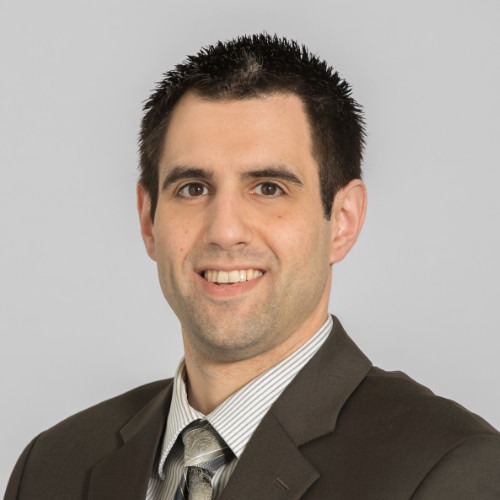‘The vulnerability of leadership’
Start with a single word:
gestalt. This is the easiest way to summarize Marianna Kern Grachek’s résumé, six pages deep of employments, certifications, leadership roles, awards. It is at once both intimidating and awesome.
Thirteen years at The Joint Commission. More than 30 past and present committee memberships and board appointments at national and community associations. Ten combined years as a director of nursing, an administrator, and then both in a dual role. And, of course, president and CEO of the American College of Health Care Administrators, a position that she has held for five years this upcoming July-a position she confesses would be difficult to perform adequately if not for her diverse background in long-term care.
But Grachek is far too humble and remarks carefully on the significance of her career. Each stop along the way has meaning, each job a mentor or supporter worth recognizing. It all coalesces into what she calls her “scope of influence”-the essence of ACHCA’s leader.
“Over the years my experiences allowed me to become a credible leadership voice and one I don’t want to misrepresent,” Grachek says of her lifelong development. “But I do believe that to be at these national stakeholder tables, one needs to have a variety of experiential perspectives from which to draw in order to guide and to direct and to lead other people into thinking differently about what leadership in long-term care is all about.”
When Grachek first arrived at ACHCA in 2006 after having served in various directorial positions at The Joint Commission, which afforded her the opportunity to “interface and interact” with long-term care leaders, she identified the most immediate concerns of her members and asked herself, “What can we do to groom, to empower these administrators so they can be more successful?”
Those 13 years at The Joint Commission-spent building up and refining its LTC accreditation services-showed Grachek that while there were certainly skilled and passionate individuals in leadership positions, the actual entry-to-practice routes that administrators had been taking were inconsistent and undeniably stratified. “It was disconcerting to me to learn that entry to practice for long-term care administration in some states could be a minimum of a high school diploma and 18 years of age,” she recalls. “Some states have been striving for a higher level of administrative sophistication by requiring a master’s degree for entry to practice. But licensure is managed by the state, so we have as many entry-to-practices models as we have licensure administrator models.
“And therein lies the challenge. When the individuals coming out of entry to practice are licensed, they are not coming to the table with an equal experience or academic achievement. Yet they’re expected to deliver on the same outcomes that are required by state and federal regulations and not all of them have yet had the opportunity to develop leadership awareness, mentoring skills, knowledge about leading and building a staff, and even the basics of hiring and firing. Here is where moving to ACHCA was a good fit for me because I could take all of the insights I gained about the vulnerability of leadership in long-term care and what it takes to make these leaders successful.”
A completely virtual association, ACHCA depends on volunteers through its broad chapter network to maintain membership development. Much of Grachek’s time is spent facilitating volunteer activity, but she is also tasked with running ACHCA at a strategic, bird’s-eye altitude. She represents the association at the Advancing Excellence in America’s Nursing Homes Campaign, the American Health Care Association’s Quality Improvement Subcommittee, and the Center for Excellence in Assisted Living, to name a few of her national interests.
Her goal at these stakeholder dialogues: sustain a presence that keeps the dedication to leadership relevant. “That’s really one of our main deliverables that we promise to our members, that we are present at national tables to influence the quality of leadership development for long-term care,” she says.
And that’s not always easy. Each year at industry shows and national meetings, a sound bite pointing out the current difficulties for administrators and operators is likely to be spoken, undercutting the great strides these leaders make within their own organizations. So, when does the field just come out and admit that long-term care administration is tough and is not going to get easier any time soon?
“It is tough,” Grachek sighs. “It’s tough for a variety of reasons, entry to practice being one of them. The regulatory environment is challenging. Moving administrators to a quality mind-set from a regulatory mind-set is sometimes difficult to do. And I really don’t have the answer or the magic bullet for what it’s going to take to make it better. I’m not in a position to place judgment on reimbursement, but when nearly two-thirds of the cost of providing services to nursing home residents are supported by Medicaid dollars, and the states are having severe budgetary challenges, it’s really a difficult, difficult thing for administrators to balance the budget and yet provide for all of the care and needs of residents, family members and staff.”
Of course, Grachek has not given up hope that it will get better, and her labor has proved fruitful thus far. The association has increased its membership under her guidance and launched the Academy of Long Term Care Leadership and Development in 2007-an initiative that has allowed ACHCA to “re-leverage” its commitment to advancing excellence in LTC leadership. Most importantly, Grachek has faith in her members, that her successes will be theirs, and that their ambitions will continue to progress the quality of care and service delivered.
“I was a member of ACHCA before becoming its CEO,” Grachek says. “From my involvement on both sides, I have come to believe that ACHCA members are the cream of the crop because they’ve made that commitment to leadership excellence in long-term care.”
Career Highlights
′98-′06 Executive Director, Long Term Care and Assisted Living Accreditation Programs, The Joint Commission
′93-′97 Intermittent Surveyor, Long Term Care Accreditation Services, The Joint Commission
′91-′96 Director (administrator/DON), St. Luke’s Transitional Care Center, Maumee, Ohio
′88-′97 Adjunct Professor, Medical College of Ohio, School of Nursing, Toledo, Ohio
′71-′87 Various clinical positions, including: Staff Nurse, Instructor, Clinical Instructor, Clinician; St. Vincent Medical Center; Toledo, Ohio
′72-′74 1st Lt., Nurse Corps, U.S. Air Force Reserve, Wright-Patterson Medical Center, Dayton, Ohio
Long-Term Living 2011 June;60(6):42-43

Kevin Kolus wrote for I Advance Senior Care / Long-Term Living when he was an editor. He left the brand in 2012. He is now senior communications manager at Cleveland Clinic.
Related Articles
Topics: Articles , Leadership











